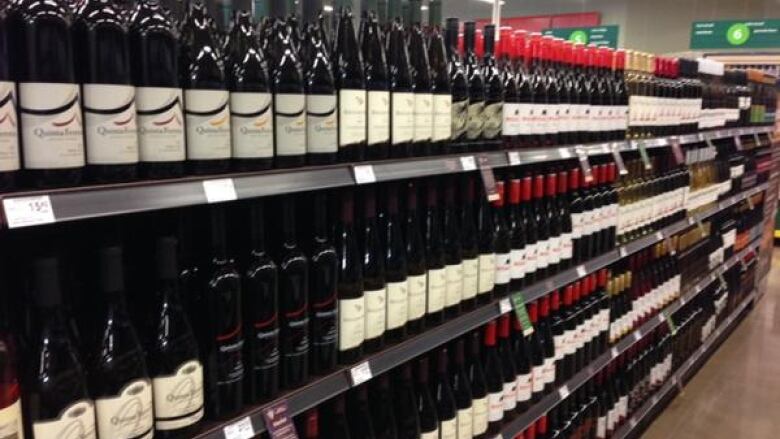California wine lobby group says U.S. to file complaint over B.C. liquor reforms
Province responds that the 60 B.C.-only liquor licence are actually 'grandfathered' into NAFTA rules

A trade dispute between British Columbia and the United States could be fermenting over the provincial government's recent liquor reforms, but the provincial government says it's not violating any international rules.
At issue, says theCalifornia Wine Institute, is the introduction of legislation in 2015 allowing grocery stores to sell wine from British Columbia and British Columbia only.
"Including NAFTA and the World Trade Organization Agreement, which obligates them to treat imported products equally compared with local products ... this is a clear violation," saidWine Institute vice president Tom LaFaille.
While there are only a limited number of grocery stores in British Columbia selling wine so far, LaFaille saysU.S.trade representativesare already in the process of filing a formal complaint for what he calls a blatant violation of international trade laws.
"What a tragedy for British Columbia consumers, who are deprived of an opportunity to choose from the vast array of great international wines available," he said, claiming that wine-growing regions of France, Italy, New Zealand, Australia, and South Africa have also voiced concerns.
Province defends 'limited program'
The B.C. government is defending the program, saying the 1987 North American Free Trade Agreement includes an exception that "grandfathers" in 60 pre-existing wine-only licences that allow a limited number of stores to sell B.C. wine only.
"The B.C. wine on shelves model is a limited program and our trade partners have been aware of these B.C wine-only licences for decades," said Bill Anderson, the spokesman for the Ministry of Small Business, which is responsible for the Liquor Distribution Branch.
"We are mindful of international trade obligations and confident in the approach we have taken," he said.
- B.C. liquor law changes upset independent and U.S. wine retailers
- Liquor to be sold in B.C. grocery stores
- Is B.C. vulnerable to Trump's attack on free trade?
Of the 60 existing licences, several are still operating as stand-alone VQA wine stores, 12 are currently owned and operated by grocery stores and several more are in the process of reopening in grocery stores, he said.
The rest will be made available through future auctions, he said.
Anderson said the popular program was aimed at modernizing the province's liquor laws by giving consumers more choice.
"We share the same goals as other wine producing jurisdictions. We are proud of the quality products that B.C.'s wineries produce and we support the growth of the industry."
Trump's eye on trade
SFU political scientist Andy Hirasays the election of Donald Trump, who has promised to renegotiate NAFTA,could add another layer of complexity to the dispute.
"Under most trade agreements,unless it's written into the agreement itself, there shouldn't be any favouritism for local producers versus foreign producers," he said.
"Now the provincial monopolies are written into NAFTA. But if they're viewed as showing unfavourable treatment or unfair treatment to American exporters, that could be brought up by Trump as a real issue."
LaFaille says he certainly hopes that's the case.
"What you're going to find under the new administration is they're going to be much more aggressive in holding Canada to its commitments."
"We're not surprised that B.C. continues to open up additional stores, but it's extremely disappointing, and I know U.S.trade representatives in Washington agree with us and are supporting us on this."
With files from Tanya Fletcher












_(720p).jpg)


 OFFICIAL HD MUSIC VIDEO.jpg)
.jpg)



























































































